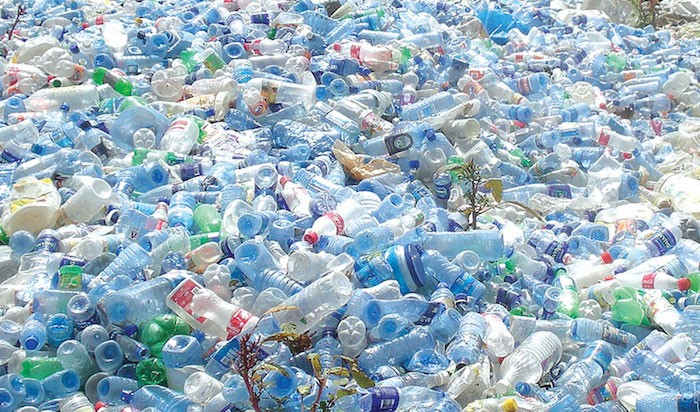The Pan African Vision for the Environment (PAVE) is asking citizens in Nigeria to contact their national negotiating Ministers and ask them to support a strong Plastics Treaty.

“Due to INC-5.2 being a high-stakes meeting, many ministers will be attending. We need to make sure that the ministers are feeling our pressure! We need everyone to help raise domestic political awareness so that ministers know what their citizens are demanding and that they know what to do to get a strong ambitious plastics treaty,” said Anthony Akpan, President of PAVE.
The second part of the fifth session of the Intergovernmental Negotiating Committee to develop an international legally binding instrument on plastic pollution, including in the marine environment (INC-5.2), is scheduled to take place from August 5 to 14, 2025, at the Palais des Nations in Geneva, Switzerland.
The resumed session will be preceded by regional consultations on August 4, 2025.
Plastic pollution, has become a huge threat to the living environment, and the human health is not an exception. Evidence has shown that one-third of the plastic packaging that did not end in the landfill can circle the Earth as many as four times in a single year.
Plastic pollution has been noted to cause mortality of about one million seabirds and 100,000 marine mammals every year. Considering the impact of pollution on the environment, it becomes imperative that the world takes concise actions in addressing it.
Akpand added: “Indiscriminate disposal of plastic waste affects the health of the environment in no small measure. Most used plastics litter the streets of most cities especially in developing countries where a waste management structure is often not in place. This litter of plastics pollute the natural environment, as well as reduces the aesthetics of our cities. In addition, plastic pollution is a major cause of ocean pollution.
“Evidence has shown that about 13 million tons of plastic wastes leak into our oceans. This causes a huge threat to biodiversity as it severely threatens marine wildlife. It saddens the heart to see how the marine ecosystem is being upset by the poor man-environment interaction.
“Beyond the deleterious effect on the environment, plastic pollution affects human health in no little way. Various research works have studied the impact of plastics on public health with overwhelming shreds of evidence. Plastics are often made of different kinds of chemicals and in various quantities. Many of these chemicals are of various concerns to the health of humans. When the plastics degrade in the environment, they often find their way to the food web and waterways where they can inadvertently enter our system (body), resulting in various health challenges.
“From the above, it is evident that plastic pollution is a serious concern both to the health of the environment and humans. It becomes necessary to have concerted measures to address this growing scourge. To address the effect of plastic pollution, we must begin to talk about it and be ready to change our attitude and behaviour towards plastic use in our daily lives and its associated waste disposal.
“Proper waste handling awareness and sensitisation programmes should be staged with the aim of changing people‟s behaviour. The government should improve plastic waste collection and processing systems so as to improve citizens‟ participation in the problem-solving process.
“The good news is that Heads of State, environment ministers and representatives from Nigeria and 174 other nations have endorsed a historic resolution at the UN Environment Assembly (UNEA) in Nairobi to end plastic pollution and forge an international legally binding agreement, by the end of 2024.
“The resolution addresses the full lifecycle of plastic, including its production, design and disposal. The resolution, entitled, ‘End Plastic Pollution: Towards an Internationally Legally Binding Instrument’, was adopted at the conclusion of the three-day UNEA-5.2 meeting, attended by more than 3,400 in-person and 1,500 online participants from UN Member States, including 79 ministers and 17 high-level officials.
“The resolution, based on three initial draft resolutions from various nations, establishes an Intergovernmental Negotiating Committee (INC), which has begun its work, aiming to complete a draft legally binding agreement by the end of 2024. But INC5 was not conclusive, hence the lead up to the second part of the fifth session of the Intergovernmental Negotiating Committee to develop an international legally binding instrument on plastic pollution, including in the marine environment (INC-5.2), is scheduled to take place from 5 to 14 August 2025 at the Palais des Nations in Geneva, Switzerland.
“That in turn, is expected to present a legally binding instrument, which would reflect diverse alternatives to address the full lifecycle of plastics, the design of reusable and recyclable products and materials, and the need for enhanced international collaboration to facilitate access to technology, to allow the revolutionary plan to be realised.”
